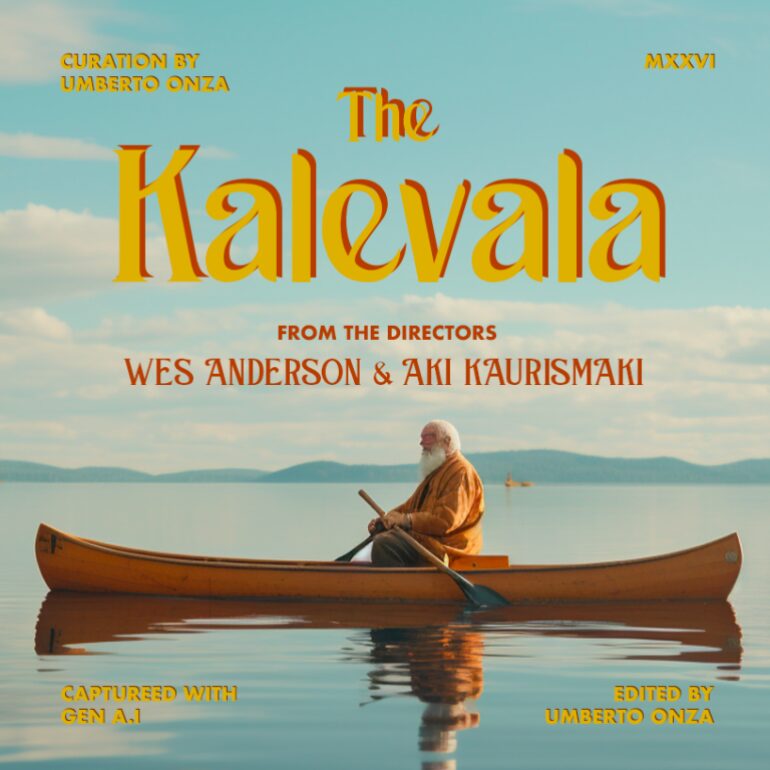Written by: Davide Abbatescianni
09.10.24
NFTFV chatted with AI specialist Umberto Onza, screenwriter Grace Maharaj, and Avalanche Studios Group rep Albert Banda to take stock of the opportunities and challenges presented by AI and transmedia.
Without mincing words, AI and transmedia are still two of the big elephants in the room. At this year’s Finnish Film Affair (FFA), which ran in Helsinki from 25 to 27 September, the two topics predictably took centre stage during many industry conversations. Several experts were invited to discuss their experiences with transmedia projects, and shared both their enthusiasm and perplexity around the impact of AI, a ground-breaking technology set to change the future of our industry, and many others.
After attending some of these sessions and chatting with many industry representatives, NFTFV sat down with three of the panellists to take stock of the debates' main takeaways and get a clear sense of the pros and cons brought by the development of AI, which now seems to be proceeding at an uncontrollable pace.
First, we spoke to Albert Banda, Business Development Manager at Avalanche Studios Group. The Stockholm-based video game developer and publisher is the giant behind successful franchises such as Just Cause, Renegade Ops and Mad Max. His work revolves around exploring creative opportunities for the firm’s portfolio strategy. Previously, Banda has been working in marketing, sales and business development for about 16 years, 8 of which have been in the gaming industry.
On 27 September, Banda took part in an FFA panel titled “Rethinking Film as a Product: Building a Business with Transmedia”.
“During the panel, I explored how and why I thought it would be useful to have a more focused knowledge exchange between the film and gaming industries. Transmedia is not new, but it continues to change with the times and new technologies. I especially wanted to learn how we might investigate intersections between project lifecycles and approaches to creating IP, from conception to publishing,” explains Banda.
Zooming in on the most interesting takeaways shared during the talk, he says: “My co-panellist Grace Maharaj, of Arvet Agency, highlighted that while there are endless IP opportunities in transmedia, the importance lies in having an authentic vision backed by sound business. My other co-panellist, Olli Sinermaa of Business Finland, expressed that there’s always a way to translate film format into game format, but this should, of course, be both a creative and technical process. These contributions validate that there is merit in a more strategic cross-industry study of how film and game producers could collaborate to create IP in light of our transformative times. So, I’m really grateful to Alisha Hasan, the Head of Industry at Finnish Film Affair, for inviting me to participate in this smart initiative.”
Maharaj, a screenwriter based in Sweden, now serves as CEO and Head of Business and Development at Arvet Agency.
When asked how she helps IPs to grow, Maharaj mentions the example of the agency’s acquisition of Lars Wilderäng’s books. “The premise of why Arvet came to be is because I saw gaps in the current industry in the Nordics, and in Sweden in particular. We look for what most people ignore or exclude deliberately because of assumptions or lack of familiarity. This is our business model.”
“I was raised to include the excluded. My parents were both of different races, living in a time where they were told by their families, politics, and culture to exclude each other. They went against those norms and made an epic story. To me, exclusions are opportunities.”
Maharaj discovered Wilderäng during her law studies at the Swedish Defence University. “An officer left a book on the table next to me. Later, I discovered Wilderäng had already written nine books. I researched his fan base, followed him on social media, and saw the value we could add. He wraps relevant geopolitical, civil society, military-spy-suspense-thriller, and action themes in Nordic genre narratives. These themes are global, but have a Nordic signature, which is the unique selling proposition of Wilderäng’s IP.”
“I also saw much in this IP that we could package for casting, story engine, production, and virtual production tools. Virtual productions align with efficiency and sustainability in ways no other solution can right now. I created an acquisition strategy that connected to existing gaps in Sweden’s creative and business models.”
To date, Arvet has acquired the rights to 12 Lars Wilderäng books, including transmedia rights. Maharaj argues that this IP “has strong potential to transition into gaming platforms and other ancillary windows that were not even present then”.
Zooming in on the panel she attended on 27 September, Maharaj praised some of Banda’s takeaways. “In particular, he said that not all IPs should be transmedia. And I agree with this. It’s about finding the right fit, not just for the project, but also for partnership expectations. He also addressed the silos between the film and TV landscape and gaming. There are a lot of knowledge gaps in both areas, and he’d like to close them, especially where expertise could benefit from the adaptation of some of their IPs into screen projects.”
Maharaj also agreed with Banda on the promising potential of FFA’s new industry programme, F-Weird, which she defined as “a really excellent starting place to bridge these silo gaps and also become a creative incubator for all storytellers, regardless of format”.
Finally, NFTVF spoke to Umberto Onza. For the past 11 years, he has been working for TBWA/Helsinki, an award-winning creative agency known for its disruptive approach to innovative advertising and brand experiences. He currently serves as the outfit’s Design Director, where he focuses on generative AI and product design. “In addition to my role, I provide consultations and AI training for filmmakers, designers, and marketing professionals through my own company, helping them leverage AI in their daily work. My background in industrial design, combined with my passion for technology, has shaped my multidisciplinary approach to creativity,” he explains.
At FFA, Onza held a workshop titled “Unlocking the Future of Filmmaking Through Artificial Intelligence”, screened his AI-generated short Kalevala, and took part in the panel “Ground-Up: Building a Film Industry with AI”.
First, we discussed Kalevala. “The 20-minute AI-generated short film is based on the Finnish epic, reimagining the invention of beer for a wedding. The film was created entirely with AI, from scriptwriting to visuals, music, and voices. I utilised a range of AI tools like ChatGPT, MidJourney, Flux Dev, Stable Diffusion, Runway Gen-3, Luma Labs, and others to push the boundaries of what’s possible with current technology,” says Onza.
He describes it as “a playful and visually rich experiment, blending traditional Finnish elements with surreal, colourful imagery, and a testament to AI’s creative potential in filmmaking”, pushing “the technology to its current maximum limits”.
In his workshop, Onza explored how AI can revolutionise every aspect of filmmaking — from idea to post-production. “I introduced participants to tools like MidJourney, Stable Diffusion, and Runway Gen-3, showing them how to generate scripts, visuals, and even complete scenes using text-based prompts. The core idea was to demonstrate how AI can enhance creativity by streamlining repetitive tasks, freeing up more time for the truly human aspects of storytelling. The participants were highly engaged, and it was exciting to see them unlock new creative possibilities,” he notes.
In the last part of our conversation, we focused on AI’s future impact on the film industry. “We can expect AI to become an integral part of every stage of the filmmaking process. Soon, tools like Runway Gen-3 and AI-powered editing platforms will enable small teams, or even solo creators, to produce entire films. Currently, creators need to use multiple AI models and tools to achieve consistent outcomes, but soon one-stop-shop AI platforms will allow creators to use fully autonomous AI filmmaking tools that generate everything from a single prompt,” he says.
“Creators can then focus on curating and fine-tuning their films in no time. Real-time visual effects, automated script analysis, and virtual production will make filmmaking faster and more accessible, democratising the process and allowing creators to achieve high-quality output with fewer resources.”
Nevertheless, Onza also acknowledged widespread concerns about job displacement and the potential loss of human creativity. “While it’s true that AI will take over certain tasks, I see it as a tool for amplifying human creativity, not replacing it. It will also create new jobs and professions. By automating time-consuming processes, AI allows filmmakers and creatives to focus on what they do best: crafting stories,” he says.
Yet, he believes the benefits outweigh the risks, offering “tremendous opportunities for democratising filmmaking”. “It reduces production costs, speeds up workflows, and allows for real-time creative experimentation. Creators can rapidly iterate ideas, generate high-quality visuals, and even test concepts with AI. This not only enables faster project development, but also opens up filmmaking to a wider range of people who might not have had access to expensive equipment or large teams in the past. The efficiency AI brings can lead to more diverse voices and stories in the industry.”
Onza predicts a bright, “hybrid” future. “AI will be used for many mid-range projects, allowing faster production of content that meets high technical standards. Meanwhile, human-driven craftsmanship will remain invaluable for premium projects, where nuance, emotion, and unique artistic vision come into play. AI will elevate the baseline of what’s possible, but the best projects will still require human creativity. Ultimately, I see AI as a tool that enhances, rather than replaces, the artistic process — making both high-efficiency,” he signs off.

